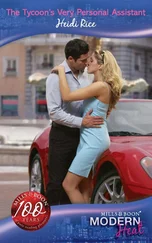Instead I lay on my bed and held Borka’s key, but the trail had gone cold. The key rested in my palm and refused to lead me anywhere. I blamed my days at Breganz-Belken. My talents had been stifled by that bunker. I also blamed the woman I was trying to find, the reticent owner of Borka’s key. She did not want me to visit.
After four days, I gave up. I hadn’t eaten; I’d barely slept. This could not go on. I’d die trying to make this key talk. I required something more — an object. A portal. I required an open wound.
I knew what met this criterion. The film still the old snapper owned of Borka after she’d been catapulted through the windshield of a car. What crucial details Borka would not disclose to me, I would force her old face to admit.
For the first time in four days, I left my room.
As I was about to climb the steps to the old snapper’s building, his front door opened. I ducked behind a newel post. Familiar voices said “many thanks” and “best of luck with your research.”
Colophon, it seemed, was no longer in Paris.
He looked awful, his cheeks erratically whiskered like those Wooly Willy games where you drag the metal filings with a magnet-tipped pencil and deposit them in clumps on Wooly Willy’s smiling face. The notable difference being: Colophon was not smiling.
I tracked him to a café. From across the street I watched him order and, right when his coffee arrived, dash to the bathroom.
By the time he returned, I was sitting at his table.
“Hello,” I said.
He was not happy to see me.
“Alwyn told me that you’d gone back to New York,” he said.
“I can just imagine what she’s told you,” I said. “She wasn’t doing the work we thought she was doing, was she?”
His shoulders tensed.
“You knew?” he said.
“That she was using me to do her own ‘research’? Yes. I knew.”
He dipped a sugar cube into his coffee, watched as the brown stain soaked upward.
“You’re taking it better than I did,” he said. “It appears we were just a means to an end.”
I wasn’t sure which end he was referring to in his case; but nor did I need to understand. I knew why and how she’d used me. That was all I required.
He gave me a bleary once-over.
“You seem well,” he said.
“You don’t,” I said. He really did look like shit, like Virginia Woolf after she’d been dredged from the river bottom.
“How did you find me?” he asked.
“Were you trying not to be found?” I asked.
He withdrew his cigarettes. He gestured at a nearby busboy for an ashtray.
“I know where you’ve been,” I said. “At the old snapper’s flat. I saw you there.”
“What’s an old snapper?” he asked.
“A paparazzi,” I said. “But not a young one.”
“Oh,” he said. “Jonas.”
I was ashamed to admit that I’d never learned the old snapper’s name. An apparent trend. I interrogated people but failed to ask them the most basic questions.
Colophon handed me an envelope.
“I planned to mail this to you,” he said.
I opened the envelope. Inside was a sizable check, payable to me.
“But I didn’t find Varga,” I said.
“I’ve put you through a lot,” he said, “and for nothing, as it turns out.”
“What do you mean?” I asked. “Varga’s dead?”
I didn’t want her to be dead; I needed for once to talk to a living person. Relying on the dead to help me understand the dead — it was not panning out for me.
“In a matter of speaking,” he said.
“In whose manner of speaking?” I pressed.
Colophon studied me, as if trying to decide whether or not I was worthy of knowing what he knew.
“I thought Alwyn might have told you,” he said.
“Told me what?” I said.
“She isn’t dead,” he said.
“And you — or she — discovered this how?” I said. Wait , I thought. Alwyn knew?
He didn’t answer. Instead he reached into his briefcase for a pair of folders, one of which I recognized as belonging to the old snapper.
He handed this file to me. The other he pinned beneath his elbow.
I flipped through the familiar Varga film stills. Possibly, I thought, the old snapper had sold Colophon the still of Borka’s post-car-accident face.
He hadn’t.
I shut the folder. I handed it back to him.
“Where is she?” I asked.
He stalled for time, lit another cigarette.
“She’s currently involved in a distasteful art piece,” he said.
“How unlike her,” I said.
Colophon cross-hatched the utensils of the two unused place settings. He lay the knives perpendicular to the forks. He made me think of a man stranded on an island, creating a pictogrammic SOS of branches in the hopes he might be rescued from above.
“She had a baby, as you already discovered,” he said. “A daughter that she gave up for adoption. Later, when the daughter was an adult, she tracked Varga down.”
From the folder beneath his elbow he withdrew a photograph of Irenke in a familiar hotel lobby. Whoever had snapped the photo had been sitting in the chair I’d sat in when I’d visited her there.
The photographer might even have been me.
“That’s her,” I confirmed dully. “That’s Irenke.”
“It’s possible Varga had no idea Irenke was her daughter until after Irenke was dead.”
“Oh,” I said. Was he still making excuses for Varga? “When did she die?”
“She died in 1984,” he said. “She killed herself, you know.”
“She killed herself?”
All along I’d understood Irenke to be dead. Why was this information any more unsettling? Yet it was. I was blind to the secret mental sufferings of the people right in front of me. Alwyn, Irenke. I might have intentions to kill myself about which I was unaware.
I knew, as Borka had claimed, so much nothing.
Though it was the last thing a person like Colophon could handle, I couldn’t help it. I was so tired, I was so very, very tired.
I started to cry.
“That was the assumption,” Colophon said. He busied his hands with a napkin so that he had an excuse for not soothing me with them. “She didn’t leave a note, exactly, but … there were indications.”
“What about Cortez?” I asked, not able to learn anything more about Irenke.
Colophon reconfigured his fork-knife pictogram.
“There was never anything between Cortez and Varga. Somehow Cortez ended up with Varga’s film reel. For all we know she gave it to him on purpose, to mock and derail the careers of future scholars like me.”
“I’m sorry,” I said. I knew how much he’d banked on the Cortez-Varga connection. She could have been an aesthetic double agent, her moral lapses redeemed. Now she was just a dictator’s former propaganda minister whose acts could not be ideologically salvaged and repackaged, not even by an academic.
“You really do look well,” he insisted, despite all immediate evidence to the contrary. “I’m glad, at least, that something good has come of this. You’ve recovered your health, I mean.”
We sat without talking. Colophon smoked his cigarette to the nub.
Since he did not intend to offer them to me, I pressed him for the details. Where and how he’d found Varga.
Colophon flagged the waiter; this time he ordered a whiskey.
“I should lie to you,” he said. “But I don’t know you well enough.”
“Well, hooray, I guess.”
He patted the second folder. “Look in here if you’re curious,” he said. “However, I don’t recommend that you do.”
He excused himself to the restroom.
I held my wrist over the folder. The veins contracted, cautioning me to go no further.
I disregarded these warnings. Besides, I knew what Colophon didn’t want me to find. My mother had acted in porn films. He, like my father, didn’t want to be the one responsible for my knowing this.
Читать дальше












